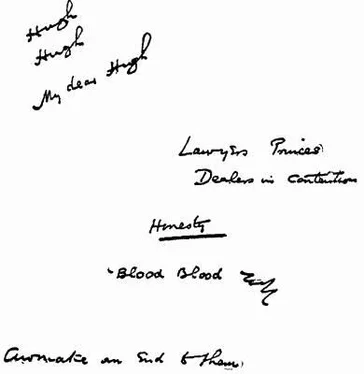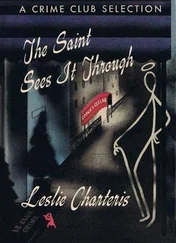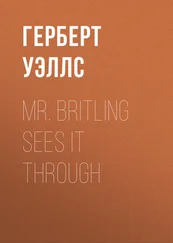Herbert Wells - Mr. Britling Sees It Through
Здесь есть возможность читать онлайн «Herbert Wells - Mr. Britling Sees It Through» весь текст электронной книги совершенно бесплатно (целиком полную версию без сокращений). В некоторых случаях можно слушать аудио, скачать через торрент в формате fb2 и присутствует краткое содержание. Жанр: Классическая проза, на английском языке. Описание произведения, (предисловие) а так же отзывы посетителей доступны на портале библиотеки ЛибКат.
- Название:Mr. Britling Sees It Through
- Автор:
- Жанр:
- Год:неизвестен
- ISBN:нет данных
- Рейтинг книги:4 / 5. Голосов: 1
-
Избранное:Добавить в избранное
- Отзывы:
-
Ваша оценка:
- 80
- 1
- 2
- 3
- 4
- 5
Mr. Britling Sees It Through: краткое содержание, описание и аннотация
Предлагаем к чтению аннотацию, описание, краткое содержание или предисловие (зависит от того, что написал сам автор книги «Mr. Britling Sees It Through»). Если вы не нашли необходимую информацию о книге — напишите в комментариях, мы постараемся отыскать её.
Mr. Britling Sees It Through — читать онлайн бесплатно полную книгу (весь текст) целиком
Ниже представлен текст книги, разбитый по страницам. Система сохранения места последней прочитанной страницы, позволяет с удобством читать онлайн бесплатно книгу «Mr. Britling Sees It Through», без необходимости каждый раз заново искать на чём Вы остановились. Поставьте закладку, и сможете в любой момент перейти на страницу, на которой закончили чтение.
Интервал:
Закладка:
Those possible tears could weigh at times even more than those possible lost embraces.
And there was Oliver.
Oliver was a person Mr. Britling had never seen. He grew into the scheme of things by insensible gradations. He was a government official in London; he was, she said, extraordinarily dull, he was lacking altogether in Mr. Britling's charm and interest, but he was faithful and tender and true. And considerably younger than Mr. Britling. He asked nothing but to love. He offered honourable marriage. And when one's heart was swelling unendurably one could weep in safety on his patient shoulder. This patient shoulder of Oliver's ultimately became Mr. Britling's most exasperating rival.
She liked to vex him with Oliver. She liked to vex him generally. Indeed in this by no means abnormal love affair, there was a very strong antagonism. She seemed to resent the attraction Mr. Britling had for her and the emotions and pleasure she had with him. She seemed under the sway of an instinctive desire to make him play heavily for her, in time, in emotion, in self-respect. It was intolerable to her that he could take her easily and happily. That would be taking her cheaply. She valued his gifts by the bother they cost him, and was determined that the path of true love should not, if she could help it, run smooth. Mr. Britling on the other hand was of the school of polite and happy lovers. He thought it outrageous to dispute and contradict, and he thought that making love was a cheerful, comfortable thing to be done in a state of high good humour and intense mutual appreciation. This levity offended the lady's pride. She drew unfavourable contrasts with Oliver. If Oliver lacked charm he certainly did not lack emotion. He desired sacrifice, it seemed, almost more than satisfactions. Oliver was a person of the most exemplary miserableness; he would weep copiously and frequently. She could always make him weep when she wanted to do so. By holding out hopes and then dashing them if by no other expedient. Why did Mr. Britling never weep? She wept.
Some base streak of competitiveness in Mr. Britling's nature made it seem impossible that he should relinquish the lady to Oliver. Besides, then, what would he do with his dull days, his afternoons, his need for a properly demonstrated affection?
So Mr. Britling trod the path of his eighth digression, rather overworked in the matter of flowers and the selection of small jewellery, stalked by the invisible and indefatigable Oliver, haunted into an unwilling industry of attentions—attentions on the model of the professional lover of the French novels—by the memory and expectation of tearful scenes. "Then you don't love me! And it's all spoilt. I've risked talk and my reputation.... I was a fool ever to dream of making love beautifully...."
Exactly like running your car into a soft wet ditch when you cannot get out and you cannot get on. And your work and your interests waiting and waiting for you!...
The car itself was an outcome of the affair. It was Mrs. Harrowdean's idea, she thought chiefly of pleasant expeditions to friendly inns in remote parts of the country, inns with a flavour of tacit complicity, but it fell in very pleasantly with Mr. Britling's private resentment at the extraordinary inconvenience of the railway communications between Matching's Easy and her station at Pyecrafts, which involved a journey to Liverpool Street and a long wait at a junction. And now the car was smashed up—just when he had acquired skill enough to take it over to Pyecrafts without shame, and on Tuesday or Wednesday at latest he would have to depart in the old way by the London train....
Only the most superficial mind would assert nowadays that man is a reasonable creature. Man is an unreasonable creature, and it was entirely unreasonable and human for Mr. Britling during his nocturnal self-reproaches to mix up his secret resentment at his infatuation for Mrs. Harrowdean with his ill-advised attack upon the wall of Brandismead Park. He ought never to have bought that car; he ought never to have been so ready to meet Mrs. Harrowdean more than half-way.
What exacerbated his feeling about Mrs. Harrowdean was a new line she had recently taken with regard to Mrs. Britling. From her first rash assumption that Mr. Britling was indifferent to his wife, she had come to realise that on the contrary he was in some ways extremely tender about his wife. This struck her as an outrageous disloyalty. Instead of appreciating a paradox she resented an infidelity. She smouldered with perplexed resentment for some days, and then astonished her lover by a series of dissertations of a hostile and devastating nature upon the lady of the Dower House.
He tried to imagine he hadn't heard all that he had heard, but Mrs. Harrowdean had a nimble pen and nimbler afterthoughts, and once her mind had got to work upon the topic she developed her offensive in half-a-dozen brilliant letters.... On the other hand she professed a steadily increasing passion for Mr. Britling. And to profess passion for Mr. Britling was to put him under a sense of profound obligation—because indeed he was a modest man. He found himself in an emotional quandary.
You see, if Mrs. Harrowdean had left Mrs. Britling alone everything would have been quite tolerable. He considered Mrs. Harrowdean a charming human being, and altogether better than he deserved. Ever so much better. She was all initiative and response and that sort of thing. And she was so discreet. She had her own reputation to think about, and one or two of her predecessors—God rest the ashes of those fires!—had not been so discreet. Yet one could not have this sort of thing going on behind Edith's back. All sorts of things one might have going on behind Edith's back, but not this writing and saying of perfectly beastly things about Edith. Nothing could alter the fact that Edith was his honour....
§ 5
Throughout the week-end Mr. Britling had kept this trouble well battened down. He had written to Mrs. Harrowdean a brief ambiguous note saying, "I am thinking over all that you have said," and after that he had scarcely thought about her at all. Or at least he had always contrived to be much more vividly thinking about something else. But now in these night silences the suppressed trouble burst hatches and rose about him.
What a mess he had made of the whole scheme of his emotional life! There had been a time when he had started out as gaily with his passions and his honour as he had started out with Gladys to go to Market Saffron. He had as little taste for complications as he had for ditches. And now his passions and his honour were in a worse case even than poor muddy smashed up Gladys as the cart-horses towed her off, for she at any rate might be repaired. But he—he was a terribly patched fabric of explanations now. Not indeed that he had ever stooped to explanations. But there he was! Far away, like a star seen down the length of a tunnel, was that first sad story of a love as clean as starlight. It had been all over by eight-and-twenty and he could find it in his heart to grieve that he had ever given a thought to love again. He should have lived a decent widower.... Then Edith had come into his life, Edith that honest and unconscious defaulter. And there again he should have stuck to his disappointment. He had stuck to it—nine days out of every ten. It's the tenth day, it's the odd seductive moment, it's the instant of confident pride—and there is your sanguine temperament in the ditch.
He began to recapitulate items in the catalogue of his escapades, and the details of his automobile misadventures mixed themselves up with the story of his heart steering. For example there was that tremendous Siddons affair. He had been taking the corner of a girlish friendship and he had taken it altogether too far. What a frightful mess that had been! When once one is off the road anything may happen, from a crumpled mud-guard to the car on the top of you. And there was his forty miles an hour spurt with the great and gifted Delphine Marquise—for whom he was to have written a play and been a perfect Annunzio. Until Willersley appeared—very like the motor-cyclist—buzzing in the opposite direction. And then had ensued angers, humiliations....
Читать дальшеИнтервал:
Закладка:
Похожие книги на «Mr. Britling Sees It Through»
Представляем Вашему вниманию похожие книги на «Mr. Britling Sees It Through» списком для выбора. Мы отобрали схожую по названию и смыслу литературу в надежде предоставить читателям больше вариантов отыскать новые, интересные, ещё непрочитанные произведения.
Обсуждение, отзывы о книге «Mr. Britling Sees It Through» и просто собственные мнения читателей. Оставьте ваши комментарии, напишите, что Вы думаете о произведении, его смысле или главных героях. Укажите что конкретно понравилось, а что нет, и почему Вы так считаете.






